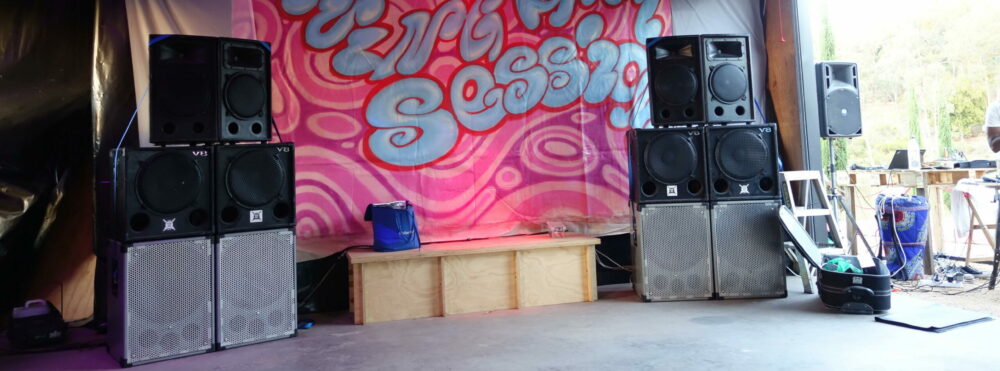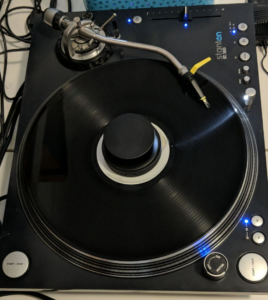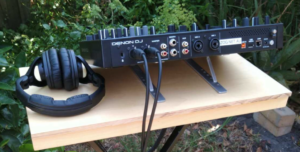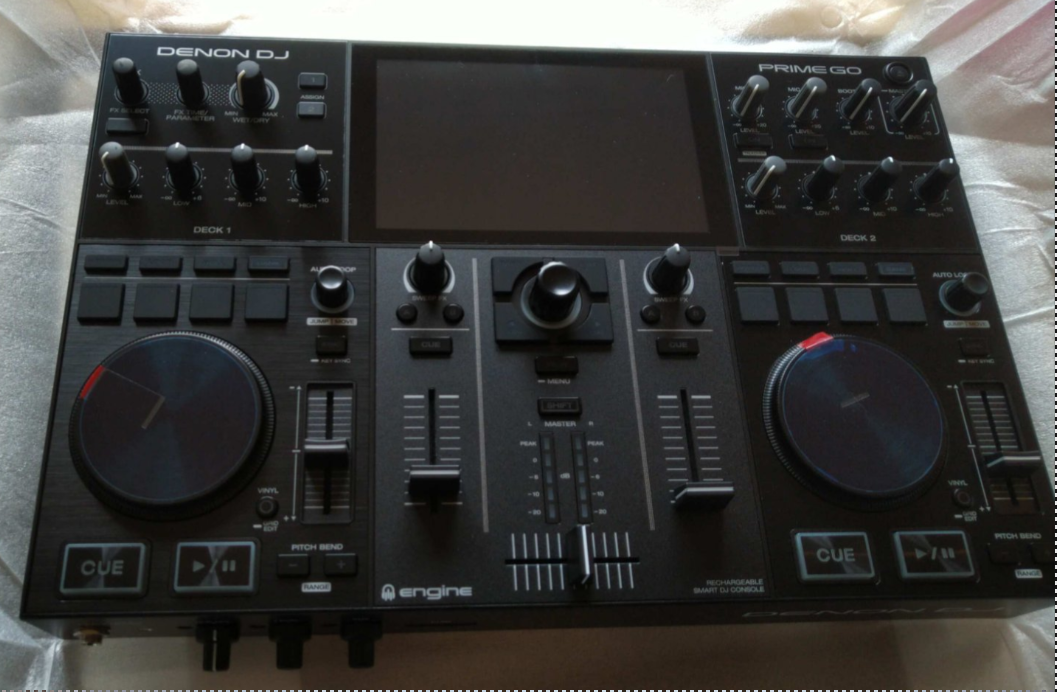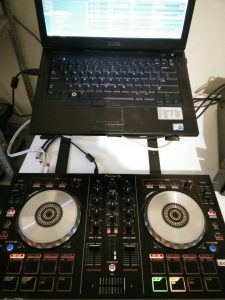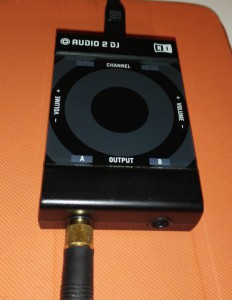I’ve been a digital DJ from the get go, starting on CDs in the mid 90s – but recently I decided to dabble with vinyl and turntables.
Category Archives: audio nerding
DENON PRIME GO – three years on
I’ve now been using the DENON PRIME GO for three years. In fact, it’s now been superseded by the DENON PRIME GO PLUS.
Despite a few foibles I’ll describe below, the unit has been great to use, and I’ll stick with it.
The DENON PRIME GO as main DJ device, one year on
I’ve had the DENON PRIME GO now for just over a year. It replaced my Linux laptop / MIXXX / Pioneer DDJ-SB2 setup, which was great – but I’d had the occasional cryptic crash on stage that was near impossible to replicate in my home studio and debug effectively.
I feel I haven’t abandoned Linux as the ENGINE OS DJ platform is an embedded Linux appliance under the hood – though it is not open source.
TLDR:
Great sound, convenient, reliable. Not perfect, but more than good enough. I’ve played a bunch of shows of various sizes using this device in the last year and it has delivered. It lets me enjoy the music and have fun.
I had one hardware failure with it – the cross-fader stopped working, but not while playing “live”. Denon/DJCITY repaired this under warranty, which took about 6 weeks.
On to the details….
ZOG now on new Linux based DJ platform DENON PRIME GO
New ZOG DJ platform – the Linux based DENON PRIME GO all in one DJ player.
minor updates to the Beyond Econowave waveguide speakers.
These speakers have been seeing daily use in the ZOG lounge-room, are essentially complete, and continue to sound great.
three small upgrades done since the completion have been:
- addition of JBL/Selenium ST200 Supertweeters.
- low frequency amp upgrade to TPA3255
- replace the miniDSP “classic” 2×4 and op-amp boost with a miniDSP 2×4 HD.
MIXXX 2.1 has been released
ZOG + Col preferred DJ software Mixxx has had a new release of stable version 2.1
this is now the preferred build to use from the official Mixxx PPA source, so the previous posts about using specific alpha builds or building from source are obsolete.
The Download instructions, including Ubuntu Linux PPA install source, are here:
MIXXX Download Instructions
The ZOG DJ rig is still:
Controller:
Pioneer DDJ SB2
Laptop
Dell Latitude E6410 with i5 M540 CPU
It has been upgraded with a Toshiba OCZ TR150 Series 960GB SSD.
OS
Xubuntu Linux, 16.04 -lowlatency kernel
current ZOG MIXXX setup Jan 2018
The last post on MIXXX I made is now out of date, so here’s what I’ve been using recently, as since the MIXXX team are releasing .deb files of their nightly builds, I’ve been trying them instead of the self compiled version.
Installed version of MIXXX
mixxx-2.1.0-alpha-pre-master-git6340-release-xenial-amd64.deb
Downloaded from http://downloads.mixxx.org/builds/master/release/
Native Instruments Audio2 DJ interface and Linux 4 channel alsa config
I was recently given a Native Instruments Audio2 DJ interface, this is a great little card with working Linux drivers that works well with MIXXX using a variation of the .asoundrc available on the MIXXX site and other locations.
But either my version of the card, or the Linux driver has changed, as my card identifies differently so the config files available elsewhere don’t work with my OS (Xubuntu 14.04 with kernel 4.2.0-18-lowlatency).
multiple audio outputs for cue with Mixvibes CrossDJ with Android Marshmallow
TLDR: If you can’t get multichannel USB audio working with CrossDJ on Android 6+, editing the /system/etc/audio_policy.conf file might help, if your device is rooted, and you don’t care about your warranty.
read on for how to do it, if you are comfortable with Linux shell commands and throwing your warranty to the wind. This is an updated version of a post I made to the Mixvibes support forum that they got a bit nervous about and locked…
Continue reading
MIXXX DJ software – ZOG preferred build
I’m just documenting this here for reference, and perhaps others find this useful.
- MIXXX is my preferred DJ software, it works well with the Numark Mixtrack Pro interface
- One reason to go the digital DJ route is to maximise sound quality, this means FLAC files where possible, CD rips or purchased as wav from beatport, bleep.com or bandcamp.. and 320k mp3 when FLAC files are simply not available..
- But I found the MIXXX 2.0 series (or earlier) had issues decoding some valid flac files purchased from bandcamp.com, causing sound to abruptly cut out, while MIXXX appears to continue playing
- after discussing with the incredibly helpful MIXXX developers they pointed me to the MIXXX 2.1 alpha source code available on github, which uses a new audio decoding engine.
- This fixed all my issues and has proven to be very stable. The effects I have found not that great, but I don’t use them much, sticking to relatively straight forward mixing.
So here are the steps….
Continue reading
